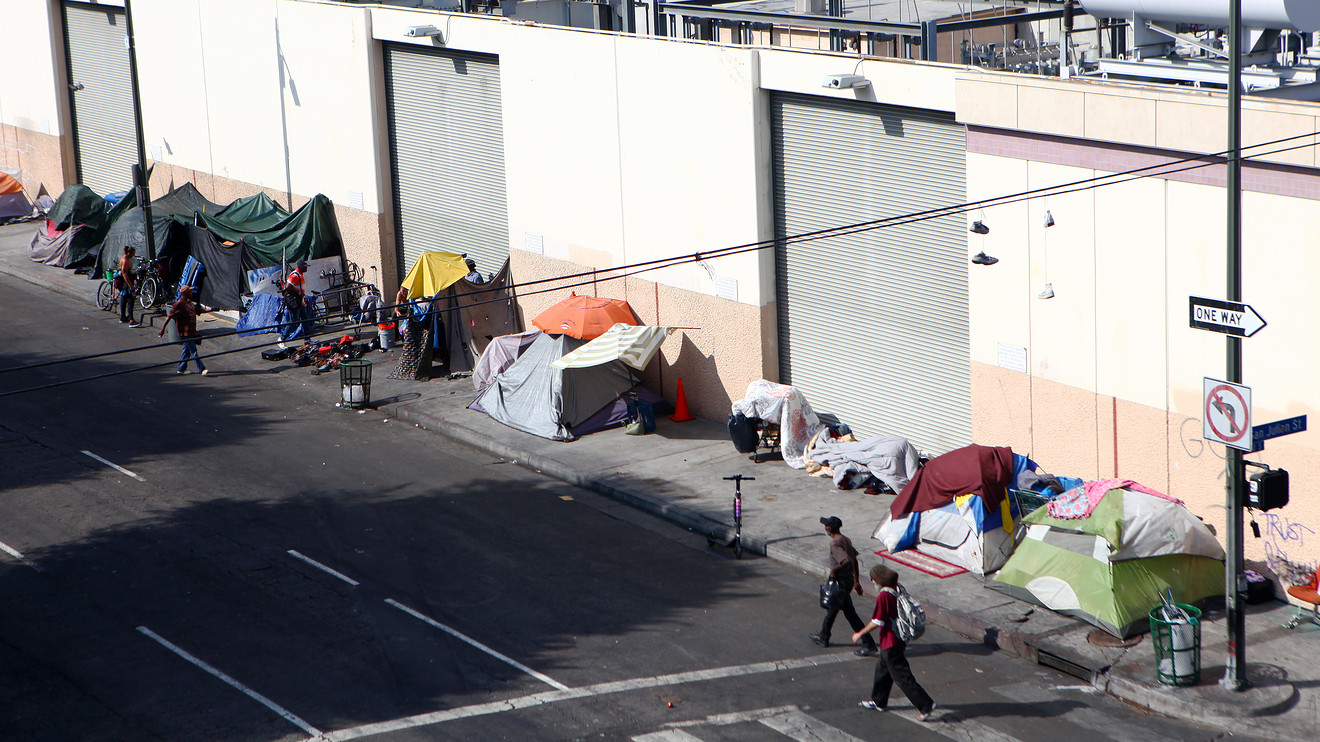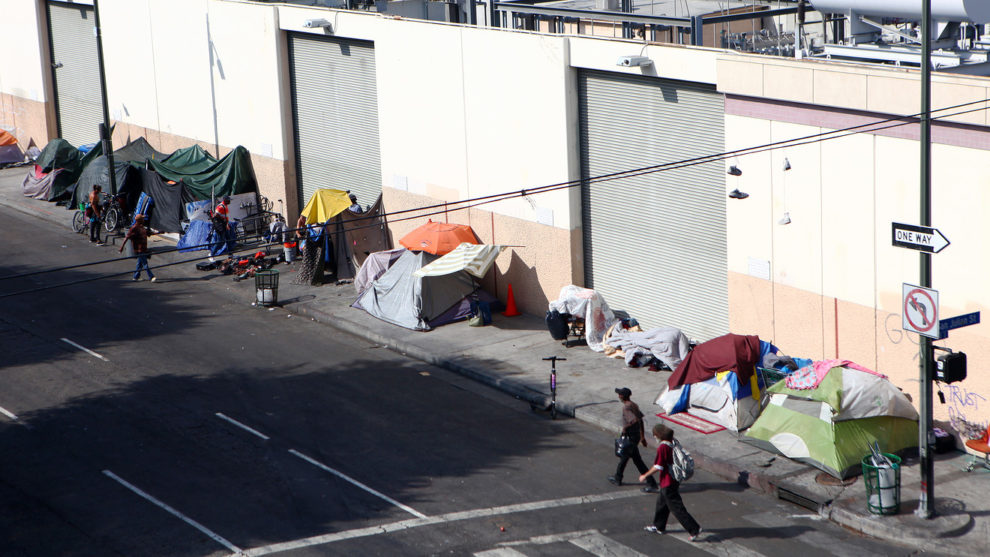
More than half a million people are homeless each night in the United States, a new White House report has found. And nearly half of them are concentrated in one state: California.
All told, 47% of all unsheltered homeless people nationwide — meaning those who sleep in areas not meant for habitation, such as sidewalks, parks, cars and abandoned buildings, rather than in shelters — live in the Golden State, according to a new report on homelessness from the White House Council of Economic Advisers. Unsheltered homeless people represent just over a third (35%) of the overall homeless population nationwide.
At the city level, four of the five cities with the highest rate of unsheltered homelessness are in California: San Francisco, Los Angeles, Santa Rosa and San Jose. Seattle joins the California municipalities in the top five.
In recent weeks, reports have suggested that the Trump administration may stage a federal intervention in California to address homelessness in the state.
As for state homelessness rates, the District of Columbia has the highest in the country, at 5.8 times the U.S. rate. New York is next, followed by Hawaii, Oregon and California. These five states together comprise 20% of the overall U.S. population but 45% of the country’s homeless population.
The White House report teased out certain trends in homelessness across the country. Communities along both coasts have much larger homeless populations than those in the middle of the country. One driver of this trend is likely the more notable rise in housing prices along the coasts than in much of the Midwest.
And states with warmer climates were generally more likely to see larger concentrations of people living on the streets. However, some warmer states such as Texas and Florida have smaller homeless populations than might be expected.
The White House report identified local laws and policing practices as a potential differentiator. “Some [states] more than others engage in more stringent enforcement of quality of life issues like restrictions on the use of tents and encampments, loitering, and other related activities,” the report noted.
Deregulation and policing are among the Trump administration’s proposals for reducing homelessness
The Trump administration has floated a range of proposals on how to curb the homelessness crisis across the nation.
For starters, the White House cited a need for deregulation. Many states and municipalities have zoning rules regarding the construction of both single-family and multifamily homes that have impeded builders’ ability to meet the demand for housing. The resulting housing scarcity has driven up prices. Experts and politicians across the political spectrum have suggested that relaxing such regulations could provide a boost to building activity.
But the Trump administration has gone a step further in suggesting that law enforcement play a role in curbing homelessness. “Of course, policies intended solely to arrest or jail homeless people simply because they are homeless are inhumane and wrong,” the report stated. “At the same time, when paired with effective services, policing may be an important tool to help move people off the street and into shelter or housing.”
The report went on to say that homelessness is worsened by “the tolerability of sleeping on the street, which among other factors may be affected through policing of street activities.” The report did not outline specific policies that law enforcement should adopt but did argue that more research to this end was needed.
In the past week, affordable-housing advocates have criticized the Trump administration’s rumored plans to use policing in addressing homelessness. The White House has reportedly considered razing tent camps, notably in Los Angeles, and directing the people taking shelter there into government-run facilities.
“The solution to homelessness is affordable homes — not further criminalization, punishing poor people for their poverty, sweeping people experiencing homelessness into increasingly unsafe areas, or warehousing people in untenable and unsustainable conditions, all of which are proposals that the White House is seriously considering,” the National Low Income Housing Coalition said in a statement. “These proposals are abhorrent and unconscionable.”












